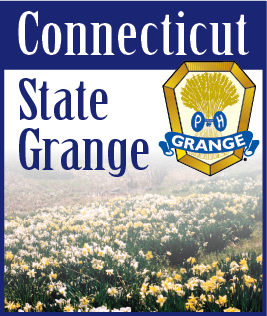| JANUARY 27, 2012 -- If you visited one of Clark County, Washington’s Granges 20 years ago, you might have found yourself seeking out a mysterious password known only to a handful of officers.
Back then, you needed that secret word to get into the fraternal organization’s meetings, said Rodger Lance, an officer at the Washington Grange No. 82. But things have changed.
“It’s opened up quite a bit from what it used to be,” Lance said. “We used to walk around whispering the password to each other in the halls. But we don’t do that anymore. We’re a lot less secretive.”
Today’s Grange seems more of a social gathering place than a secret society, especially in less rural, more urban settings like Vancouver.
Clark County’s network of 13 Granges, which are part of the larger state and national system, offer such a wide variety of activities and projects that sometimes their agricultural roots seem almost hidden — but they’re still there.
And though membership levels have been dropping, local Granges have also seen a small resurgence in interest tied to the popularity of local organic farming and farmers markets, said Dan Hammock, spokesman for the Washington State Grange.
Agricultural roots
The national Grange system was founded in 1867 as a society for farmers and farm families to support one another.
Some of its initial rules and practices were borrowed from Freemasonry, like the secret passwords, but the Grange has never been as restrictive as the Masons, and has even allowed women to hold its highest offices from the get-go.
“We started out as an organization to advocate for agriculture and to provide rural community centers,” Hammock said. “But lately we’ve become more of a community service organization with many programs that benefit various groups, people and charities.”
Grange membership is open to everyone who fills out an application and is willing to pay the $45 yearly fee.
“It’s a good social thing,” said Francie Taylor, an officer at Barberton Grange No. 571. “Granges are a place for people to work together on projects, but when people get together, not only do they enjoy the activities but they enjoy each other. Everybody has a good time. Everybody laughs.”
Local Grange community projects include giving knitted goods to underprivileged babies, donating time to groups like Meals on Wheels and providing free dictionaries to third-graders to encourage them to read.
Members also have local, statewide and national competitions against each other in things like baking, crafts and public speaking.
And each Grange hosts social events like dances, knitting groups and talent shows.
Agriculture continues to play a major role. Grange groups often work on projects with 4-H and Future Farmers of America. “We’ve really opened up to the small organic producers, and we fight for their rights as an organization in the state Legislature and in Washington D.C.,” Hammock said.
The county’s 925 members like to brag that even at the smallest Grange they can draft legislation that could be picked up and shared with the organization on a national level.
And the Grange has had many successes over the years as a lobbying agency for agriculture and community groups.
Still, the Grange faces its share of challenges.
Washington has one of the largest Grange organizations in the country, with 14,058 members. But like many fraternal groups, it’s having a hard time finding new members in the age of computers and the Internet, Hammock said.
“Our membership isn’t what we’d like it to be,” Hammock said. “It kind of peaked in the 1980s and has dropped off since then.”
Many members are senior citizens who enjoy the Grange as a place to socialize and meet others with similar interests, said Janice Anderson, master of the Clark County Grange system.
“Most people aren’t interested in our business meetings,” Anderson said. “People are interested in activities, and that’s what we want to do to keep bringing more members of the community in.”
The county group has put together a campers club that goes to different locations each month, photography groups and recycled crafts contests.
Members said they’d love to see more youth and young adults join their group, which have been harder demographics to recruit.
“We’re very family-oriented,” Anderson said. “You don’t have to have roots in agriculture to be a member. Really, what makes up the Grange now is activities.”
Many Granges support themselves by renting their halls out to community groups for theater productions, meetings and lectures.
Despite all of the events and activities the Grange is involved in, though, there’s still a lack of public knowledge about what the group is, Hammock said.
“People who grew up here in Washington, they’ve seen a Grange hall, maybe they’ve been in it, but they don’t know what we do,” Hammock said. |
